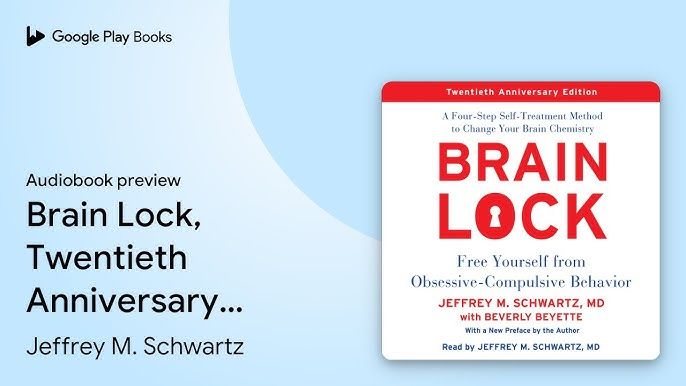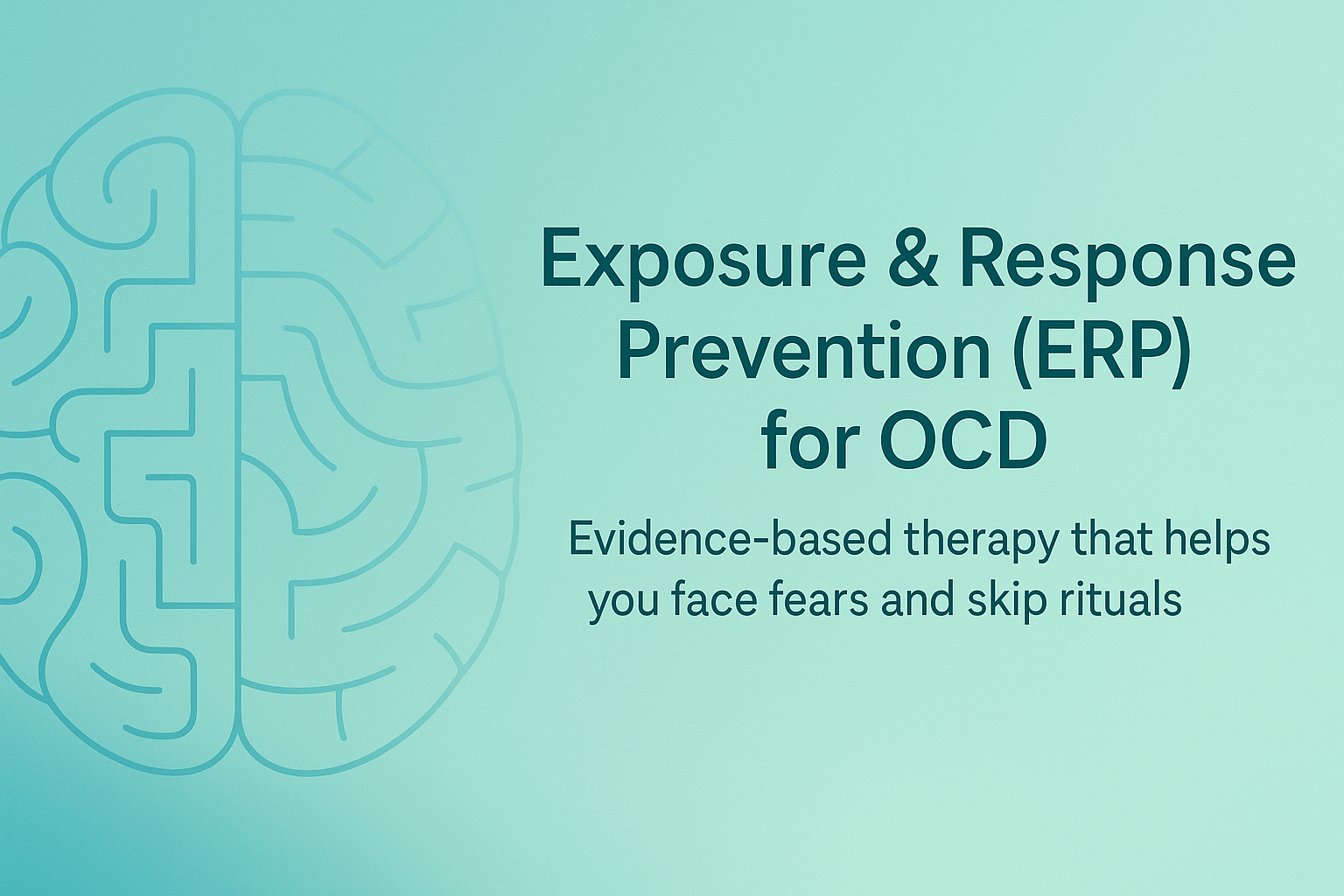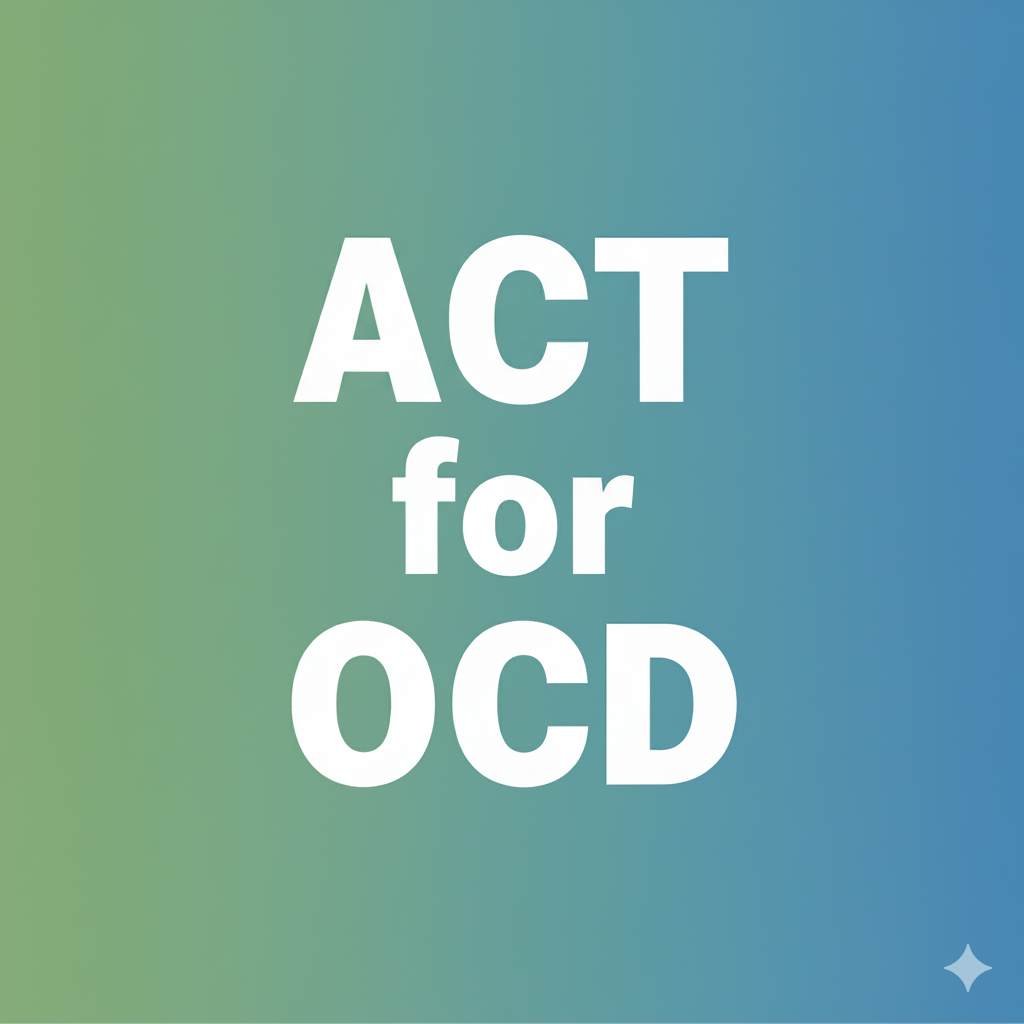Overview of Therapy for OCD
What Is OCD ?
Obsessive-Compulsive Disorder (OCD) is a mental health condition marked by obsessions (intrusive, distressing thoughts, images, or urges) and compulsions (repetitive behaviors or mental acts performed to reduce anxiety or prevent a feared outcome). People with OCD often know their fears are excessive but feel trapped in a cycle that steals time, energy, and joy.
Common OCD Subtypes (Examples)
- Contamination/Health OCD: Fear of germs, illness, chemicals; excessive washing or avoidance.
- Checking OCD: Repeatedly checking locks, appliances, emails, symptoms.
- “Just-Right”/Perfectionism OCD: Intense need for symmetry, order, or the “right feeling.”
- Moral/Scrupulosity OCD: Fear of being a bad person, offending God, or breaking rules.
- Harm OCD: Intrusive violent or sexual thoughts; avoidance of sharp objects or loved ones.
- Relationship OCD (ROCD): Doubts about one’s partner, compatibility, or attraction.
You don’t have to fit neatly into a subtype to get help. OCD is about patterns, not labels.
Why Psychotherapy Works for OCD
Therapy aims to break the obsession–compulsion loop. Instead of trying to eliminate every intrusive thought (impossible!), you learn new ways to respond so the thoughts matter less—and your life matters more.
The Core Approaches
1) Exposure and Response Prevention (ERP)
- What it is: Gradual, supported practice facing feared situations (exposure) without performing compulsions (response prevention).
- Why it works: Your brain relearns that anxiety rises and falls on its own, even without rituals, and feared outcomes are far less likely than OCD insists.
- Example: If contamination is a fear, you might touch a doorknob and delay hand-washing with your therapist’s guidance.
2) Acceptance and Commitment Therapy (ACT)
- What it is: Skills for noticing thoughts and feelings without getting hooked, clarifying your values, and taking meaningful action even when discomfort is present.
- Why it helps: Intrusive thoughts lose control when you stop fighting them and start moving toward what matters.
3) Internal Family Systems (IFS)
- What it is: A compassionate way to understand inner “parts” (the protector that compels rituals, the fearful part anticipating danger).
- Why it helps: When parts feel heard and safe, they soften—reducing the intensity of urges and self-criticism.
These approaches often work together: ERP for behavioral change, ACT for mindset and values, IFS for self-compassion and deeper healing.
What to Expect in OCD Therapy
- Assessment & Goal-Setting
We map your obsession–compulsion cycles, triggers, safety behaviors, and avoidance patterns. We define clear goals (e.g., “Spend <10 minutes a day checking” or “Hold my baby without avoidance”). - Personalized Treatment Plan
Together we build a fear hierarchy—from easier challenges to tougher ones. You’ll learn core skills: mindfulness, response-delay, and values-based action. - Weekly ERP Practice
In session and between sessions, you complete structured exposures with compassionate coaching. Progress is tracked, celebrated, and adjusted as needed. - Relapse Prevention
We create a maintenance plan: early-warning signs, booster exercises, and a simple routine that keeps gains solid.
Practical Skills You’ll Learn
- Name it to tame it: “This is an OCD thought, not a fact.”
- Limit reassurance: Ask for connection, not certainty (“Can we sit with this together?”).
- Delay & Reduce: Postpone rituals by 10–15 minutes, then shrink their length and frequency.
- Opposite Action: Do what OCD says not to do (safely) and stay with the discomfort.
- Values Micro-Steps: Pick one daily action aligned with who you want to be—small, repeatable, meaningful.
Myths vs. Facts
- Myth: “If I have a scary thought, it means I want it.”
Fact: Intrusive thoughts are ego-dystonic—the exact opposite of your values. - Myth: “I must be 100% certain before I can relax.”
Fact: Life is uncertain. Therapy teaches you to live well with uncertainty. - Myth: “ERP is too harsh.”
Fact: Good ERP is collaborative, gradual, and compassionate—never forced.
When to Seek Help
- Compulsions take >1 hour/day or cause significant distress.
- You’re avoiding people, places, or activities you care about.
- Reassurance and checking keep growing, not shrinking.
- You want trained guidance and a clear plan to get unstuck.
How Loved Ones Can Support
- Shift from certainty to support: “I’m here with you,” not “You’re safe, I promise.”
- Agree on boundaries: Limit reassurance loops; encourage ERP goals.
- Celebrate effort, not certainty: Praise showing up and staying with discomfort.
A Sample 8–12 Week Roadmap
- Weeks 1–2: Assessment, education, values work, building your hierarchy.
- Weeks 3–6: ERP starts; daily home practice; ACT skills for defusion and acceptance.
- Weeks 7–10: Harder exposures; IFS-informed self-compassion; relapse prevention skills.
- Weeks 11–12: Consolidate gains; finalize a maintenance plan and booster schedule.


